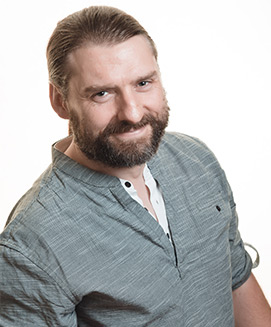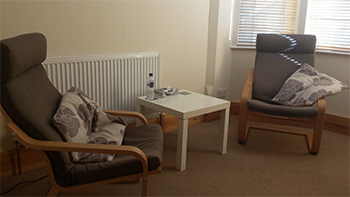
Richard Lamb
What sort of therapy practitioner are you?
I prefer to combine different approaches, to be flexible. My own life path so far has been distinctly non-linear, and that reflects my approach. So I combine practical, goal-focused life coaching, alongside hypnotherapy and NLP. If a client’s ‘model of the world’ includes a spiritual perspective, then we’ll explore that too to facilitate positive change.
I’ve discovered a great shift within myself over recent years, and I’m taking that shift forward to study psychosynthesis to build into my practice. Next steps are to explore the ‘transpersonal’ counselling aspects of therapeutic work, so I’m researching psychosynthesis trainers across the UK right now.
Where do you live?
Sherwood, a relatively leafy part of Nottingham. Sherwood’s quite a diverse community, from artic drivers to artists.
How long have you been practicing?
Nearly 3 years now.
Do you see clients from home or in a clinic?
From a couple of clinics in Nottingham.
What problems/issues do you treat most frequently?
Stress and anxiety, which after further exploring tends to be anchored in a general sense overwhelm and meaninglessness. The society we’re members of doesn’t seem to value self-knowledge, so facilitating a detached, compassionate space for clients to explore what they truly value, as opposed to living by others’ values by unconscious default, seems to deliver the greatest, long-lasting benefits.
What are your biggest frustrations running your practice?
Getting going so working long days, and getting the word out on my offerings. I’m aiming to drop the full-time job so I can focus on developing the practice (which includes further training), so getting enough clients to support that goal is a primary focus right now.
What do you find hardest about your daily work?
Developing and implementing a compelling marketing strategy; it’s taking up a lot of time right now, though it is fun to explore how I can best reach out to people in need of change.
Although the IT job can be high-pressured, there is an inner ‘knowing’ with the therapy and coaching work, which isn’t actually ‘hard’, is more like entering a ‘zone of flow’, and the more I trust myself, the more relaxed I feel, and so greater the sense of knowing that I’m ‘doing the right thing’ by holding a space for people to heal and grow… and yes, I’m an old hippy ;{) I’m a naturally empathic person, so setting and maintaining healthy personal boundaries helps me be detached, objective, and firm (and direct when appropriate), yet compassionate.
Do you find your professional body supportive and helpful? Do they help you create connections with fellow therapists?
I haven’t found the CNHC or ANLP helpful so far, though that’s as much a reflection of my not investigating how they might help.
How do you balance work and life? Stress management/avoiding burnout…
I find taking time to exercise (that good ol’ mind-body connection) to be immensely helpful and knowing when to just stop, be still, and quiet the mind to help immensely. Time with friends
What frustrates you most about the way mental health is dealt with in your country?
The knee-jerk reaction of GPs to dispense medication as a quick fix. I admit that a quick fix can help stabilise a condition like depression, though meds do not address underlying root causes. I’ve found that adopting a ‘human givens’ approach when coaching clients, where our fundamental needs are met, is a pathway to recovery.
Can you tell us about your most uplifting experience treating a recent client? (anonymously, of course!)
A client, now in his early 50s, experienced severe depression since he was 13. He’s now clear of his medication, living an active life, doing what he loves and free from depression. Another fellow managed to overcome a pretty chronic cocaine habit, and he’s been clear for 6 months. They both light me up inside :{)
Click here to read more about Richard’s work.

Pictured above: Richard’s therapy room.
If you would like to be our next Practitioner in Focus, click here and let us know!






